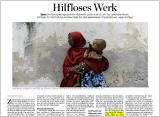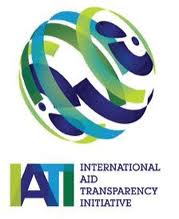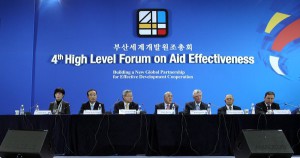Comments by Jan Stiefel, IDEAS AidRating, on “Sneak Peek: The future of Swiss Aid” Interview with Martin Dahinden, published in DEVEX blog on 20 January 2012
Another administrative agency announcing policy decisions taken without any public debate- as if they were the Foreign Office themselves. But public debate on policies, and notably development policies- is more needed than ever.
Mr Dahinden says that his agency, SDC, wants to give priority to a combination of humanitarian with long term development projects, and this notably in „fragile states“. Which brings us to the centre of debate:
First: mingling humanitarian and development issues together points in the wrong direction: it will not improve results, but rather dilute them. The professional requirements of both are too far apart. It would be better to have separate entities, each with clear priorities, but cooperating.
Second: We already observe a lack in SDC transparency in aid flows as well as in impact monitoring. IATI is still not complied with. Merging the diverging priorities of emergency aid and of long term aid will not improve, but rather worsen transparency. The way to endlessly argue what exactly the priorities will be- and when- will be wide open.
Third: Working in fragile states itself is something for which almost no success monitoring is possible. The risk of failure is high. Failure at an elevated level, e.g. government, can jeopardize all other efforts in the same country. So why go and cumulate risk? SDC should remember the disaster in Rwanda, a „fragile“ Swiss „priority“ country, where all efforts ended in holocaustic failure in 1994. SDC did not fare well in that catastrophe and does not seem to have learned much.
A brew of all three produces unnecessary extra complexity and risk cumulation. This makes it too easy to find excuses for failures, unsatisfactory results, and other shortcomings. Make no mistake: people to work in those difficult contexts will likely not be bureaucrats from headquarters, but outsiders. And they will be the first to be blamed and fired, if anything goes wrong.
There is another important element which is too often forgotten by aid agencies: Any long term blanket budget attached to a defined country gives the wrong message to possible „beneficiaries“ and „agents“: “Hey, here comes a lot of money that must be spent, no matter how”. And this in countries like Haiti or Somalia? It is an invitation to wastage and worse. Moreover: Disasters and fragility are by definition things that do not go well with bureaucratic four year plans: Where will be the flexibility to cope with the next calamity in the next fragile environment?
Let me put it straight: we of AidRating welcome that Switzerland is increasing its aid spending. But let SDC and others finish their homework on results, transparency (remember IATI), and competitivity rather than plunging head-on into new problems.




 AidRating, vertreten durch Jan Stiefel, ist Mitglied der Technical Advisory Group von IATI geworden. Der
AidRating, vertreten durch Jan Stiefel, ist Mitglied der Technical Advisory Group von IATI geworden. Der 